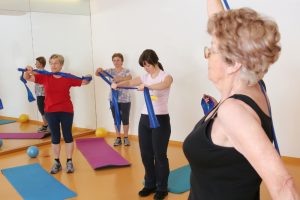Which Social Activities Benefit Older Adults?

Staying connected with others is crucial throughout life, but it becomes especially important for older adults. Social activities for older adults offer a multitude of benefits, impacting both mental and physical well-being. But with so many options available, it can be tricky to know where to start. This guide explores the different types of social activities that benefit older Australians, along with tips for finding them and making the most of the experience.
Why are social activities important for older adults?
Social circles can shrink due to retirement, relocation, or even the loss of loved ones. This can lead to feelings of loneliness and isolation, which can negatively affect both mental and physical health. Studies have shown that social connection can:
- Reduce the risk of depression and anxiety.
- Improve cognitive function and memory.
- Boost the immune system and lower blood pressure.
- Increase feelings of happiness and well-being.
Social activities provide a sense of purpose, belonging, and enjoyment. They offer opportunities for stimulating conversation, learning new skills, and sharing experiences. This social interaction can be a powerful tool for combating loneliness and its detrimental effects.
What types of social activities are available for older adults?
The beauty of social activities for older adults is the sheer variety available. There’s something to suit everyone’s interests and physical abilities. Here are some ideas to get you started:

- Physical activity groups: Gentle exercise is a fantastic way to stay active and socialise. Consider joining a walking group, attending chair yoga or tai chi classes, or participating in low-impact aerobics sessions. These activities are a great way to get some exercise, have fun, and meet new people.
- Creative pursuits: Unleash your inner artist! Many community centres and libraries offer art classes, pottery workshops, or writing groups. These activities provide a creative outlet, stimulate the mind, and allow you to connect with others who share similar interests.
- Volunteer opportunities: Giving back to the community is a rewarding way to stay socially engaged. Volunteering opportunities are plentiful, ranging from helping out at a local soup kitchen to assisting at a library or animal shelter. Volunteering allows you to use your skills and experience while making a positive impact on others.
- Educational programs: Lifelong learning is a wonderful way to keep your mind active and engaged. Many community centres and universities offer courses specifically designed for older adults, covering topics like history, technology, or current affairs. These programs provide an opportunity to learn something new, meet new people, and challenge yourself intellectually.
Can technology enhance social connection for older adults?
Technology can be a powerful tool for staying connected with loved ones and friends who live far away. Social media platforms like Facebook and Instagram allow you to share updates, photos, and videos with loved ones. Video chat platforms like Zoom and Skype make it possible to see and talk to family and friends face-to-face, even if they’re miles away.

There are also online communities specifically designed for older adults. These communities provide a platform to connect with others who share similar interests, ask questions, and offer support.
How can you find social activities in your community?
There are numerous resources available to help you find social activities for older adults in your community. Here are a few tips:
- Contact your local senior centre: Most senior centres offer a variety of social activities and programs specifically designed for older adults.
- Check your local library or council website: Libraries and councils often list upcoming events and activities for older adults on their websites.
- Talk to your doctor: Your doctor can be a valuable resource for information about social activities for older adults. They may be aware of specific programs or groups that cater to your interests and needs.
What are some tips for getting started with social activities?
Starting a new social activity can feel daunting, especially if you’re feeling shy or anxious. Here are some tips to help you ease into it:

- Begin with something small: Don’t overwhelm yourself by trying to join multiple groups right away. Start with one activity that sounds interesting and gradually increase your involvement as you feel comfortable.
- Find an activity that aligns with your interests: You’re more likely to stick with an activity if you enjoy it. Consider what you’ve always wanted to try or what you were passionate about in the past.
- Don’t be afraid to step outside your comfort zone: While it’s important to find activities you enjoy, occasionally stepping outside your comfort zone can lead to surprising discoveries and new friendships.
- Be patient with yourself: Building new relationships takes time. Don’t get discouraged if you don’t click with everyone immediately. Keep an open mind and be patient, friendships will blossom naturally.
How can you make social activities fun and engaging?
Here are some tips to make social activities for older adults fun and engaging:
- Get involved in the group: Don’t just sit back and observe. Participate in discussions, ask questions, and offer your own thoughts and experiences.
- Be open to meeting new people: Strike up conversations with others in the group. You might be surprised at the interesting people you meet and the friendships you can form.
- Plan social outings with friends: Once you’ve established connections within a group, suggest outings or activities outside of the regular meetings. This is a great way to strengthen friendships and create lasting memories.
- Embrace the learning curve: Technology can be a fantastic tool for social connection, but it can also be intimidating for some. Don’t be afraid to ask for help from younger family members or friends to learn how to use social media platforms or video chat apps. There are also many free online resources and courses available to help older adults become more comfortable with technology.
Conclusion
Staying socially connected is essential for maintaining a healthy and fulfilling life as we age. Engaging in social activities for older adults offers a multitude of benefits, from boosting mental and physical well-being to combating loneliness and isolation. With the vast array of activities available, there’s something for everyone. So, step outside your comfort zone, embrace new experiences, and discover the joy of social connection.
Australian Disability Services: Social connection and you
At Australian Disability Services, we understand the importance of social connection for people of all ages and abilities. We offer a range of programs and services designed to help older adults stay connected with their communities and build meaningful relationships. Whether you’re interested in joining a social group, participating in volunteer activities, or simply seeking companionship, ADS can help you find the support and resources you need to thrive.
Contact us today to learn more about our social connection programs and services for older adults. We’re here to help you live a life filled with connection, purpose, and joy.

